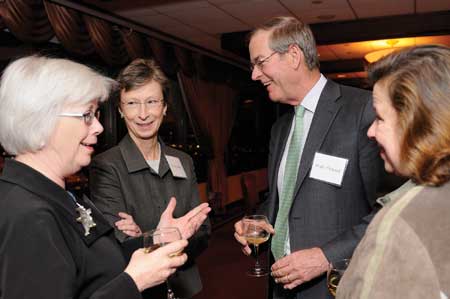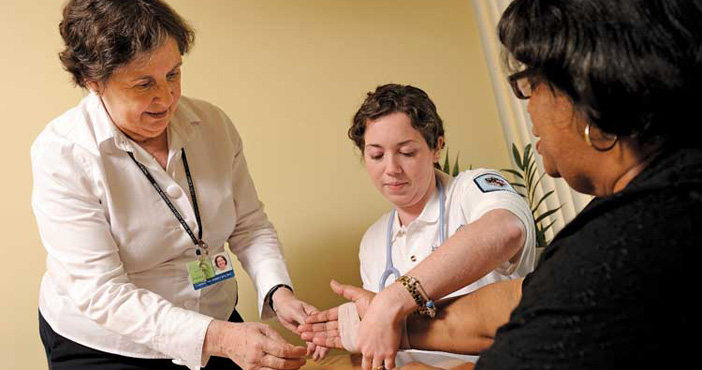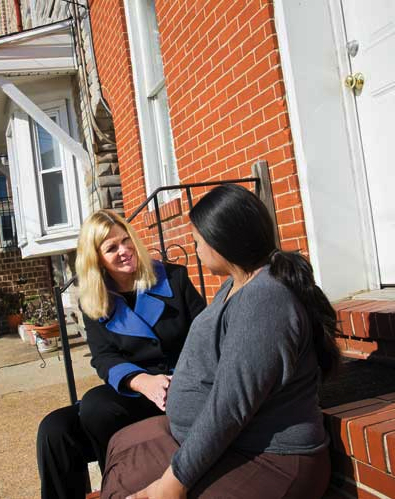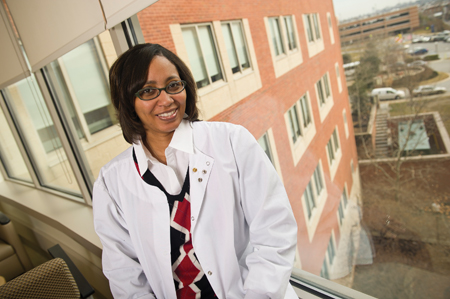Written by Teddi Fine
Marguerite Baty ’04, MSN/MPH ’06, is preparing to defend her dissertation proposal and then head into the field to begin her research. She is among a handful of SON-educated nurses on the fast track toward careers as nurse researchers. As elsewhere, doctoral education at the Johns Hopkins University School of Nursing builds on undergraduate and master’s study, usually at a series of different institutions. For a small, but growing number of students, however, virtually the entire course of study, from BSN to PhD, is taking place at the JHUSON. And if Associate Dean for Research Jerilyn Allen, ScD, RN, and PhD program director Marie Nolan, PhD, MPH, RN, have anything to do about it, that handful will multiply exponentially.
The timing couldn’t be better. Government data suggest that the nursing shortage not only continues in clinical care, but also is growing among nurse researchers and educators. That’s why it’s important to encourage research early and often. And that is just what has been happening at the SON. Under the leadership of Drs. Allen and Nolan, through a unique approach to nursing education, linking research to clinical practice right from the start of nursing education, the SON is growing new generations of nurse researchers.
According to Allen, the School is fortunate to attract the best and the brightest. Some students already are looking toward research careers and matriculate knowing that the SON ranks seventh among the nation’s nursing schools for NIH funding, a sure sign of research leadership. But, whether simply curious or already “primed” for a potential research career or simply inquisitive, Allen notes that “most students recognize that creating an evidence base for nursing is critical, and that research is the way to find answers not already there. Our SON programs are designed to take advantage of that natural curiosity, right from the start of nursing education.”
With 18 young students in the current cadre, the Research Honors program, for example enables baccalaureate students to engage in every step of the discovery process under the leadership of a faculty mentor. Most baccalaureate students are socially aware and, like Baty, with previous education and experience under their belts. As a former Peace Corps worker, Baty says she found the fast-track BSN program for former volunteers, coupled with the MSN/MPH program, made the SON a perfect fit that enabled her to “continue one-on-one clinical work, and training from a global public health perspective. I was able to gain more experience and move straight through toward my PhD faster and well prepared.”
Being prepared for the rigors of research is critical. PhD program director Nolan says, “Our PhD students flourish under the close mentorship of an advisor with an established funded program of research. Students also learn to lead multi-disciplinary research teams, and develop research colleagues among faculty and students in the Schools of Nursing, Medicine, and Public Health.” Nolan and Allen agree that the ability to “make change happen” makes a research career particularly appealing. In addition, Allen observes that “research also is a lot of fun.”
In the meantime, Marguerite continues to prepare for her proposal defense and her planned research in the Philippines focused on HIV risk, relationship power and intimate partner violence. And when she’s finished, she plans to take her career full- circle to again become an educator and mentor, but this time to future generations of nurse researchers, clinicians and educators.
 Advisory Council Welcomes New Faculty
Advisory Council Welcomes New Faculty In Good Hands—Today
In Good Hands—Today The Practitioners
The Practitioners A Learning Profession
A Learning Profession







